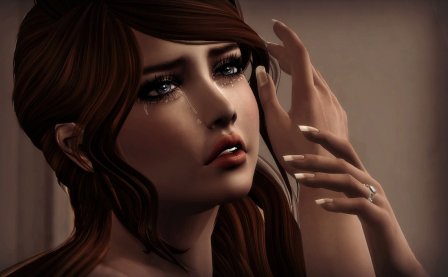We know Spencer Krug from his anthemic work in Wolf Parade, the wordy epics of Sunset Rubdown, and his Swan Lake gems with Carey Mercer and Dan Bejar. We’ve watched his songwriting grow stranger and snakier, eventually resulting in sidewinding long-form organ and marimba experiments as Moonface. And, like everything will, even those sounds have faded. Almost 10 years after the sing-along triumph of “I’ll Believe In Anything,” Krug’s work is at its most insular now: a self-proclaimed “Sad Liberace” phase. Last year’s Julia with Blue Jeans On followed the genius singer-songwriter out into the empty-stadium wilderness of grand piano and voice, where he could slay us with reverberating honesty, immediacy, and reality.
The ghosts and tigers are being obscured for elevators and denim, the myths giving way to their creator and the cold world he’s wandered into. Krug’s lyrics are still rife with metaphors and allusions, but the bare instrumentation accompanies undisguisable loneliness and frustration. With City Wrecker, a veil is being lifted, only for us to find him in “The Fog.” This bad fog of loneliness is a cover and a comfort, but also a place to get lost and exhausted. Hear the conviction in Krug’s voice, a ragged howl more steely than ever before, as he reenacts the deadening pageant of “Going in and going out/ And going in and going out/ And going in and going out again.” A shimmering synth arpeggio and moody Q-chord countermelody emerge from the fog as the company and surroundings that Krug doesn’t care about right now.
The EP is rooted in the stagnation and restlessness of the corrupted now. Krug says these are songs about places, but they are places only knowable to him as ruined by his own history, as soured by the city wrecker. The title track travels through time, past “2000-and-whatever” and into “la la la la la,” while “Running in Place with Everyone” is stuck in one motion, a bitter treadmill going on and on like the titular refrain repeated over plodding keys. As the songs sentimentalize boredom, the music itself grows tired, audibly wearing away into grey gloom and downcast eyes.
It’s not until “Helsinki Winter 2013” and its grand blue chords that Krug can imagine his present less foggily, still haunted by old friends and royalty, but brimming with clear-eyed sadness. When he admits, “I didn’t know that my old life would become/ A swarm of swallows thinning out against the aurora borealis,” the piano thins out to match, etching the image in all its shameless grandeur. A later admission that, “I thought that I would be stronger,” falters out like a goodbye, into the retreat of Krug’s cinematic piano coda: a creeping walk home alone in the cold, a deep breath to exorcise fog under the streetlamps, drifting down the quiet sidewalks with hands in pocket.
The last two tracks run 8 and 10 minutes, a defiant and confessional closing suite, filled with righteous self-effacement, the sort of clarity that eluded the EP’s first half. The oscillating synthesizer from the opener reemerges on grand finale “Daughter of a Dove,” as Krug sings about the (maybe wrong) impression he has of himself after his retreat from bands and their attendant tinkering. Krug is at peak capacity, grasping for straws (“My name is the bay!”) and then rethinking himself. Considering these mistakes, he arrives at synecdoche spirituality, confessing and self-professing all at once: “And I guess I should’ve told you I am sometimes just an arm/ Just another arm hanging out a window on a highway in the sun.” He sings like there’s no forgiveness awaiting him, but even then, he’ll be damned if that arm is pathetic or boring instead of holy, because it ought to be enough that sometimes he’s just an arm.
But he’s not. He is “Breakwater to the sea/ That’s as spiritual as I need to be.” The spirituality of a breakwater, which provides safe harbor while collecting debris all the same, is a faith of half-resignation, of acceptance. Krug is staring down the endless crash and retreat of the waves, now no more than a cracked bulkhead, simply still. He contains the waves chopping and crashing against themselves always in reformation, like fires burning alive to live. That Krug identifies with a structure and not the fires or the tide is perhaps the most affecting admission on this injured EP, even if not totally convincing once he’s let it all out — sounding like anything but a fixture — by the song’s thunderous end.
If Moonface is the project where Krug feels he can shed his skin without disturbing others and worrying about the confines of a band, then this Sad Liberace winter might be the hibernation he needs before rattling again like the live-burning dragon of his old mythology. On City Wrecker, in the swirling synths and bottled righteousness, you can hear Krug stirring the embers.
More about: Moonface




